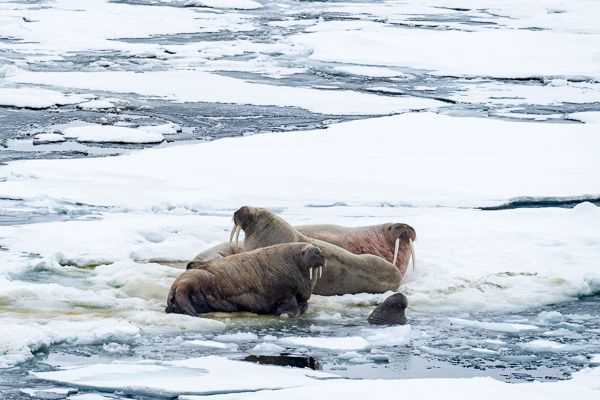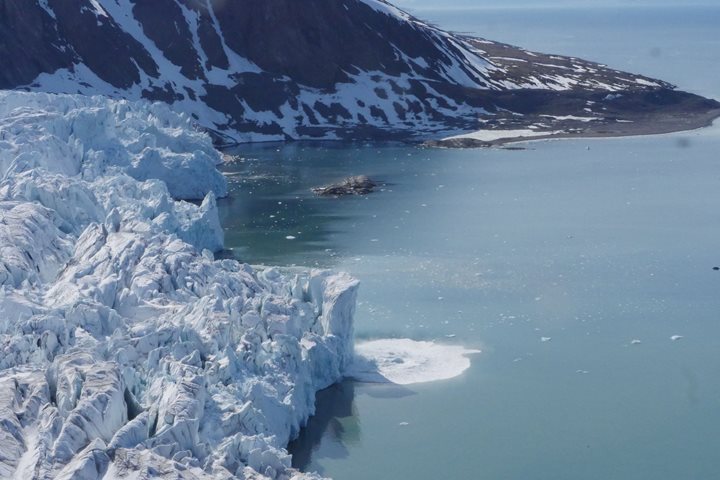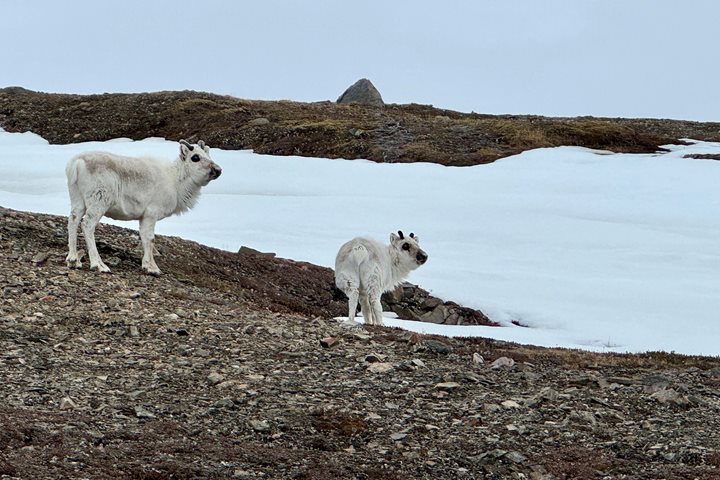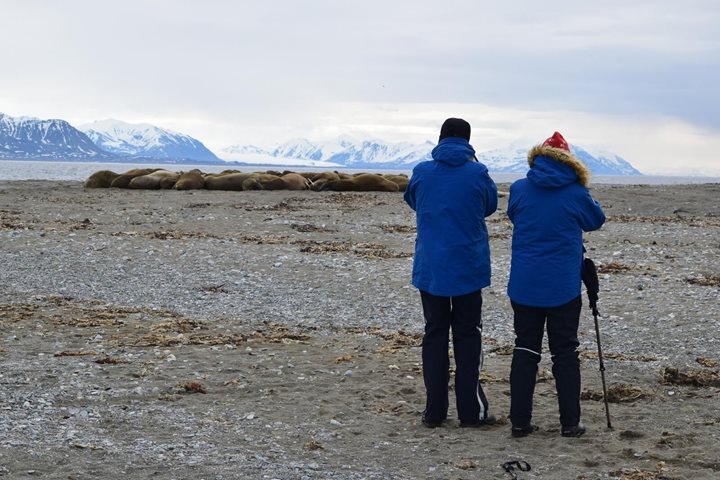We’ve spent the early morning observing birds in the strait of Hinlopen. Then our morning landing was cancelled due to a bear ashore, walking exactly where we had intended to land. Instead, we’ve been proceeding further north for a walk ashore on a lateral moraine covered by snow. We’ve seen the polar desert, beautiful minerals, and fox tracks. During the afternoon, we went on a wildlife watch in the area of Bjørnsundet spotted many “pixel bears” through our scopes and binoculars. Some walruses were also hauling on some ice floes.
6/17/2025
Read
National Geographic Resolution
Spitsbergen Island, Svalbard
Today, we landed at the stunning glacier front of Nordbreen, nestled deep within the majestic Wijdefjorden. The day offered unforgettable experiences, both on land and at sea. Our long hikers embarked on an epic journey up to the ridge of Slettho. The ascent was rewarded with sweeping views of the rugged, dramatic landscape carved by ancient ice. From this high vantage point, we felt the raw power and isolation of the Arctic. As we stood together in five minutes of silence, taking in the vast stillness, nature answered with a breathtaking moment: the glacier calved. The thunderous sound echoed across the fjord—a powerful reminder of the ever-changing world of ice. Meanwhile, our Zodiac cruisers witnessed the same calving event from sea level. From the water, they felt the full force of the glacier’s collapse—the crash of ice, the rolling waves, and the deep, resonating boom that followed. It was a rare and visceral moment, connecting all of us more deeply with the Arctic wilderness. A day like this reminds us of why we journey to these remote places: for connection, perspective, and awe.







